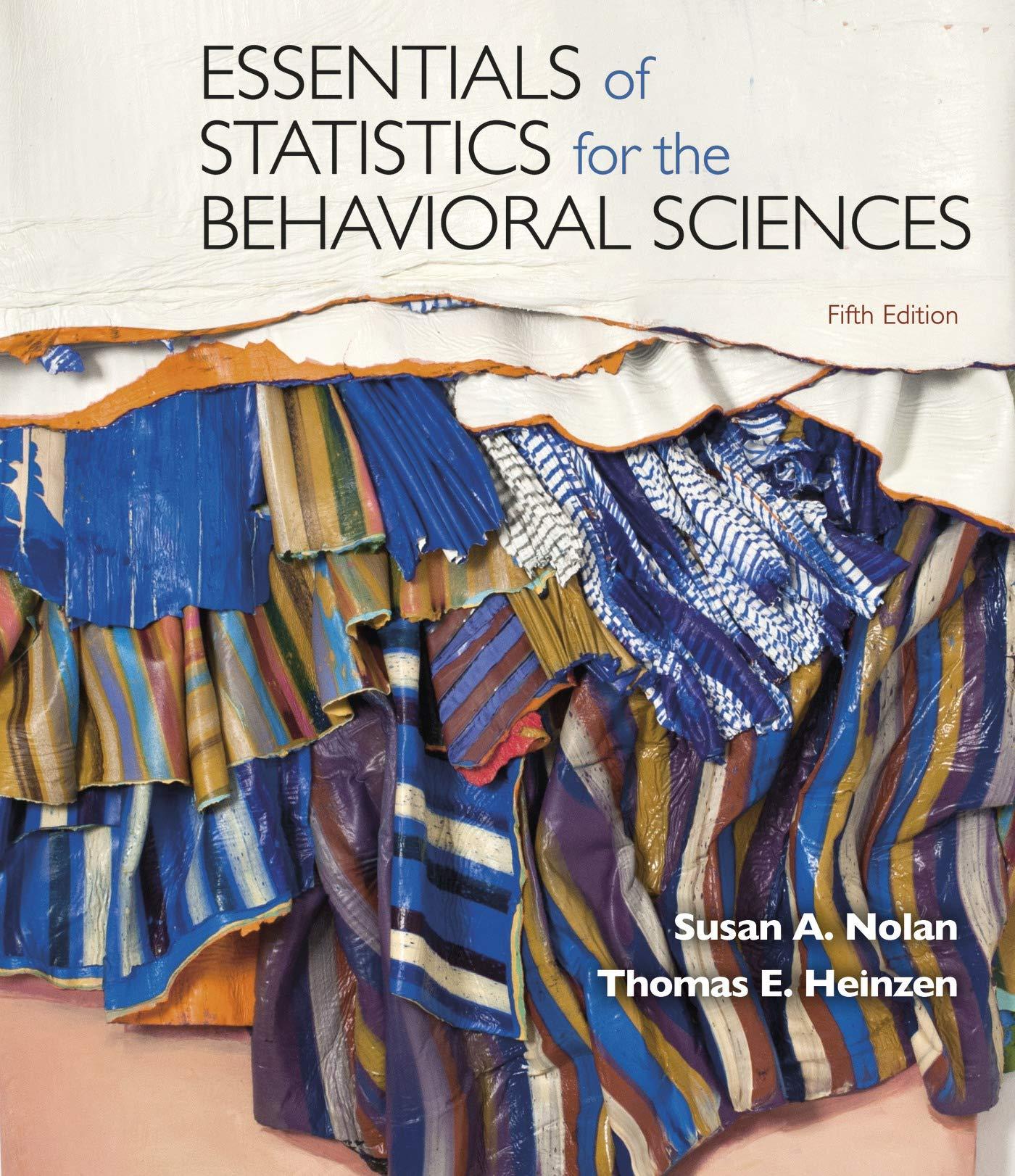8.56 Power analysis and enhancing memory: In a study of the effects of testing on enhancing memory,...
Question:
8.56 Power analysis and enhancing memory: In a study of the effects of testing on enhancing memory, Akan and colleagues (2018) performed an a priori power analysis to determine the sample size they would need to detect a small- to medium-sized effect (d = 0.40) with 80% power and an alpha level of 0.05. Their analysis indicated that they would need 52 participants.
a. Why did Akan and colleagues power their study to find an effect of size d = 0.40?
b. What would happen to the power of the study if the real effect size that Akan and colleagues were studying was smaller than d = 0.40?
c. What would be the easiest way for Akan and colleagues to increase their power without increasing their chances of making a Type I error? 8.57 Type I errors, Type II errors, and ego depletion: Ego depletion refers to the idea that we have a limited amount of self-control, which can be depleted. Exerting self-control in one situation will make it harder to exert self-control on later tasks. For example, maybe you’re eating a healthy diet and successfully avoided the holiday cookies at work, but then couldn’t resist the holiday cookies your grandparents sent you. Singh and Göritz (2018) investigated whether ego depletion interferes with working memory performance and found no statistically significant difference in working memory between an ego-depleted group and a control group at an alpha level of 0.05. The total sample size for their study was N = 1385. The researchers ran a power analysis to determine whether their study, with this large sample, would have had enough power to detect even a small effect. That is, they were trying to determine whether they failed to reject the null hypothesis in error. The power analysis determined that their study had a power of 0.98 to detect a small effect.
a. Is it likely that Singh and Göritz made a Type II error? Why or why not?
b. What is the probability that Singh and Göritz made a Type I error?
of making a Type I error? 8.57 Type I errors, Type II errors, and ego depletion: Ego depletion refers to the idea that we have a limited amount of self-control, which can be depleted. Exerting self-control in one situation will make it harder to exert self-control on later tasks. For example, maybe you’re eating a healthy diet and successfully avoided the holiday cookies at work, but then couldn’t resist the holiday cookies your grandparents sent you. Singh and Göritz (2018) investigated whether ego depletion interferes with working memory performance and found no statistically significant difference in working memory between an ego-depleted group and a control group at an alpha level of 0.05. The total sample size for their study was N = 1385. The researchers ran a power analysis to determine whether their study, with this large sample, would have had enough power to detect even a small effect. That is, they were trying to determine whether they failed to reject the null hypothesis in error. The power analysis determined that their study had a power of 0.98 to detect a small effect.
a. Is it likely that Singh and Göritz made a Type II error? Why or why not?
b. What is the probability that Singh and Göritz made a Type I error?
Step by Step Answer:

Essentials Of Statistics For The Behavioral Sciences
ISBN: 9781319247195
5th Edition
Authors: Susan A. Nolan, Thomas Heinzen






